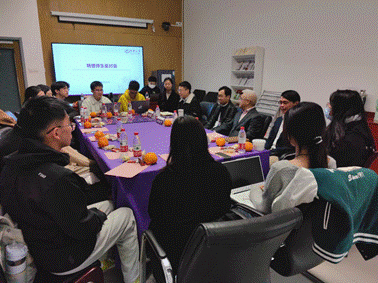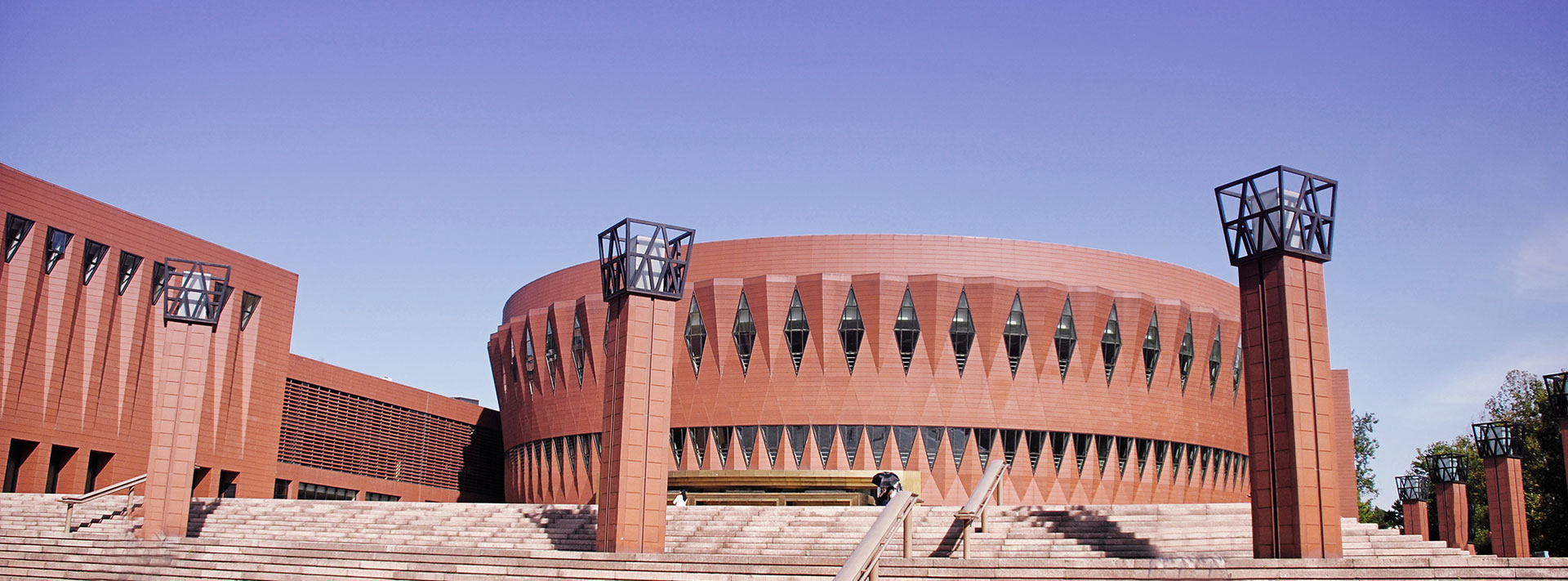On the afternoon of March 21, 2024, the first activity of “Mingli Faculty-Student Face-to-Face Communication” was held in Room 109 of the Law Library Building. This series of activities are held to thoroughly learn students’ actual needs in the school, fully understand their opinions and suggestions on the work of the school, and effectively answer the questions of different student groups concerning their study, employment and life.
Zhou Guangquan, Dean of the School of Law, Chen Hangping, Deputy Secretary of the Party Committee of the School, and Chen Xinyu, Professor of the School of Law were invited to participate in the first activity of “Mingli Faculty-Student Face-to-Face Communication”, and more than 10 representatives of undergraduate and graduate students of the School of Law were present. This activity was jointly organized by the Graduate Student Union and Undergraduate Student Union of the School of Law.
Problems and Feedback
At the beginning of the activity, Chen Hangping warmly welcomed the students to participate in “Mingli Faculty-Student Face-to-Face Communication”, pointing out that the series of activities are held to provide a platform for faculty members and students to communicate directly face to face, to better solve the problems in study, employment, life and other aspects, and to better promote the further development of the student work in the school. Students were expected to speak their mind freely during the activity and put forward opinions and suggestions on all aspects of work in the school.


Next, the Graduate Student Union and Undergraduate Student Union of the school respectively reported students’ needs and suggestions collected earlier, mainly involving recommendation for graduate studies, moot court competition, employment assistance, academic guidance, etc., and students’ hope that the school would strengthen its support for students’ social practice and mental health counseling.
Faculty-Student Communication
In the session of free speech and faculty-student communication, some graduate students suggested that the school should strengthen its support for students’ employment practices. After learning the actual difficulties faced by the students, Zhou Guangquan noted that the School of Law always attaches great importance to students’ employment practices, and the school will, relying on the existing practice bases, strive to effectively solve related problems, help the students to clarify their employment wishes and gain a deeper understanding of different legal professions, and follow the current situation of legal career development to explore employment practice modes suitable for law students.

Some graduate students pointed out that with the increasing pressure of further education and employment, students’ demand for psychological counseling has increased significantly, but it is difficult to make appointments in the university counseling center. Zhou Guangquan said that the school is very concerned about the students’ mental health, and it will conduct research and make contact as soon as possible, put the construction of psychological counseling stations in the school and departments on the agenda, and solve the problems of funds and places.
Some undergraduate students put forward suggestions on undergraduate training programs and qualifications for being recommended for graduate studies. After fully listening to their opinions, Zhou Guangquan noted that he would organize related teachers to answer relevant questions in a special session.

Some undergraduate students suggested that the curriculum system and training scheme of the international class of law be enriched. Zhou Guangquan gave a detailed explanation on the current training scheme of the international class of law, and said that the school would discuss and optimize the curriculum, further promote international exchanges and cooperation, and highlight the special characteristics of the international class.
Also attending this exchange were representatives from Hong Kong, Macao and Taiwan, overseas students and students from the prosecutor class.
Summary
Finally, Zhou Guangquan made a summary speech on this activity, noting that the school will regularly hold a series of activities of “Mingli Faculty-Student Face-to-Face Communication” to provide more opportunities for direct communication between faculty members and students. Regarding the specific problems reported by the students, the school will carefully study them, make arrangements according to the school policy requirements and the actual situation of the School of Law, and promote the related work to be implemented in an orderly manner and as soon as possible. We also look forward to more opportunities for face-to-face communication with the students in the future.

Thus, the first session of “Mingli Faculty-Student Face-to-Face Communication” was successfully concluded in a friendly and harmonious atmosphere.


